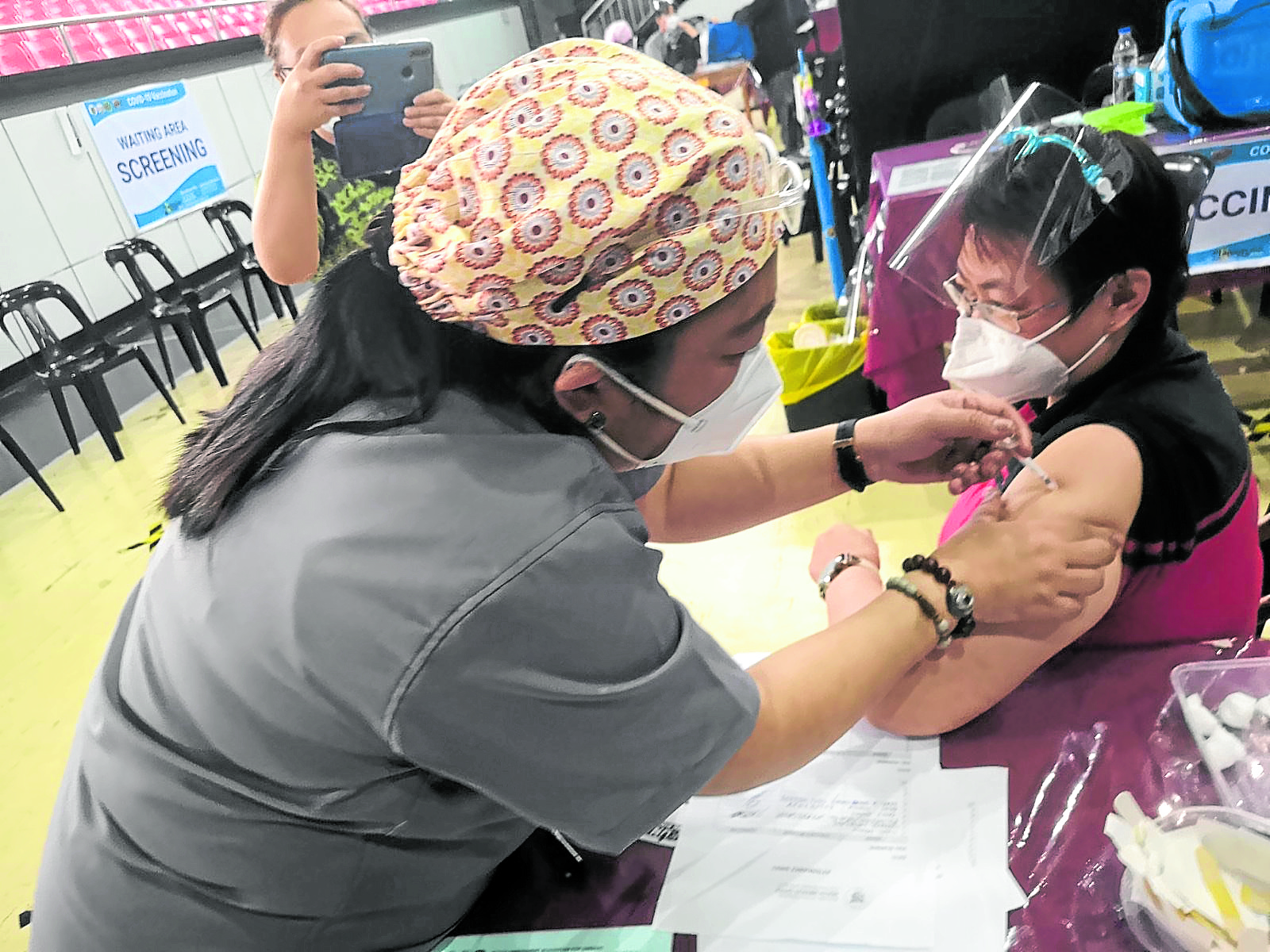Cordillera eyes tighter border watch to stop variants

FIGHTING VIRUS The Baguio City government has started
vaccinating its medical front-liners and other priority groups
and continued free testing to contain the spread of COVID-19
in the summer capital. —EV ESPIRITU
BAGUIO CITY—Controlling the mobility, particularly of tourists escaping the sweltering heat, is now being discussed by Cordillera medical experts as the region deals with almost 3,000 patients battling COVID-19 as of Wednesday.
The region recorded 31,347 COVID-19 infections since the pandemic struck in 2020, of which 2,993 are active cases, officials of the Department of Health (DOH) said at a briefing.
Adding to the region’s health concerns is the COVID-19 variant first detected in South Africa (B.1.351 SARS-CoV-2) and has infected two residents in Ifugao province and one more in Abra, said Dr. Amelita Pangilinan, the DOH assistant regional director.
The two provinces were recently placed under the much stricter modified enhanced community quarantine (MECQ), along with Metro Manila and the nearby provinces of Laguna, Rizal, Bulacan and Cavite. MECQ is the second most stringent quarantine classification.
Ifugao, a tourist destination famous for its rice terraces and local culture, has 507 active cases out of its total 3,047 infections.
Article continues after this advertisementPangilinan said the spike in Ifugao began in April and peaked on April 29, noting that “infections slowed down on May 2 only to rise once again on May 3.”
Article continues after this advertisementUniform travel rules
A DOH team sent there on the first day of MECQ was informed by one of the mayors that cases rose after local governments complied with the uniform travel guidelines imposed by the Inter-Agency Task Force for the Management of Emerging Infectious Disease, she said.
The guidelines eased border restrictions and no longer required mandatory tests for travelers.
Pangilinan said Ifugao used to be strict about border crossings and required every traveler to present medical clearances, negative COVID-19 test results and travel authorization. The province heeded the travel guidelines “without any calibrations,” she said.
Medical workers have tracked the movement of a worker from Dubai in the United Arab Emirates who returned to Ifugao, Pangilinan said to illustrate the spike of cases there.
The man was not among patients with the South African variant but because of the eased restrictions, he managed to travel around the province.
Pangilinan said the visitor participated in community gatherings before tests confirmed he had COVID-19 and may have infected relatives.
Gatherings attended by returning family members from abroad appear to be common precursors of infections in other parts of the Cordillera, she said.
Abra, meanwhile, tightened its quarantine rules and maintained strict border controls despite uniform travel guidelines to regulate its residents’ movement, Pangilinan said.
Local health data showed that Abra recorded 83 active cases out of its total 514 infections. The Cordillera’s first COVID-19 case was reported in Abra in March last year.
More contagious
To date, the more contagious variants of COVID-19 have infected a total of 101 Cordillera residents, most of them contracting the variant first seen in the United Kingdom (B.1.1.7), Pangilinan said.
Mountain Province has the biggest concentration of UK variant infections at 30 cases followed by Benguet with 15. Baguio, which is under a general community quarantine like the provinces of Benguet, Mountain Province, Apayao and Kalinga, has recorded a total of 27 UK variant cases, adding pressure on authorities to regulate movement in the city.